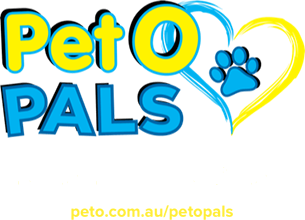Importance of Socialisation
Proactively socialising your puppy in an important part of their development but did you know that most people are not doing it correctly? Socialisation is more than just exposing your puppy to all sorts of environments, experiences, sounds, surfaces, people, and animals. It’s about doing it in a way so that your pup is comfortable with living in our world!
The experiences a puppy has up to 16 weeks of age are critical and will really influence and shape their behaviour well into adulthood. Between 16 weeks to 1 year, your puppy will continue to go through various changes so socialisation should continue to be an important part of daily activities.
Key Socialisation Tips
At Your Puppy’s Pace
Allow your puppy to socialise and explore in their own pace. Never force your puppy into situations they are not ready for! Instead encourage them with lots of praise or treats and allow them to take their time or introduce the situation over a couple of sessions.
Aim For Positive and Neutral Experiences
People often make the mistake of thinking that their puppy needs love everyone and everything. However, creating an overly positive experience for your puppy may cause other issues down the track. A cute puppy excitedly bonding up to people and other dogs may be totally adorable while they are still small, but as they grow bigger, most people and dogs will not be very tolerant. So, aim for a balanced mix of positive and neutral outcomes. Allow your dog to meet other dogs and people, just not ALL of them!
Dog Parks
While it may sound exciting to rush your new puppy off to a dog park so they can make new friends, it should be done with caution. Unless you know the dogs and the owners in the park enough to know that they are responsible, it would be wise to avoid dog parks until your puppy is older. Dog parks usually have dogs with unknown temperaments and any negative experience for your puppy while they’re young (and impressionable!) can have long lasting effects when they are adults.
Instead, organise to attend puppy preschool or meet up with friends who have calm older dogs for a play date. And if you do need to go to a park to exercise your puppy, choose to go at slower times of the day or find a quieter park.
Handling
Throughout its life, you dog will need to be handled for various reasons. It’s a good idea to get them used to being handled and touched at an early age. Especially between their paws, their ears, tail and mouth.
Socialisation Checklist
Here are some things you should aim to introduce your puppy to:
People & Animals
- Children of all ages
- Adults, both men and women
- People with hats, glasses, facial hair, etc.
- People with crutches, wheelchairs, canes, etc.
- People on motorbikes, bicycles, scooters, etc.
- Dogs and other puppies
- Other pets, including cats, guinea pigs and rabbits
Places
- Sidewalks
- Parks and beaches
- Veterinary clinics
- Pet stores
- Other people’s homes
- Car parks
- Construction sites
- Ponds and rivers
- Different surfaces – grass, slippery floors, stairs, wobbly surfaces, mud, sand, carpet, etc.
Experiences
- Riding in your car
- Grooming
- Bath time
- Leash training
- Crate training
- Having various parts of their body handled and inspected – teeth, mouth, paws, etc.
- Rain and thunderstorms
- Swimming
- Wearing clothing
Noises
- Doorbell
- Garagedoor
- Door opening and closing
- Vacuums
- Fireworks
- Traffic
- Hair dryer
- Microwave
- Music
- Large crowds
The first year of your puppy’s life is the most important for creating good foundations. Remember to be patient, introduce new things slowly and invest the time on good quality socialisation. We promise you’ll continue to reap the benefits throughout your dog’s life.


